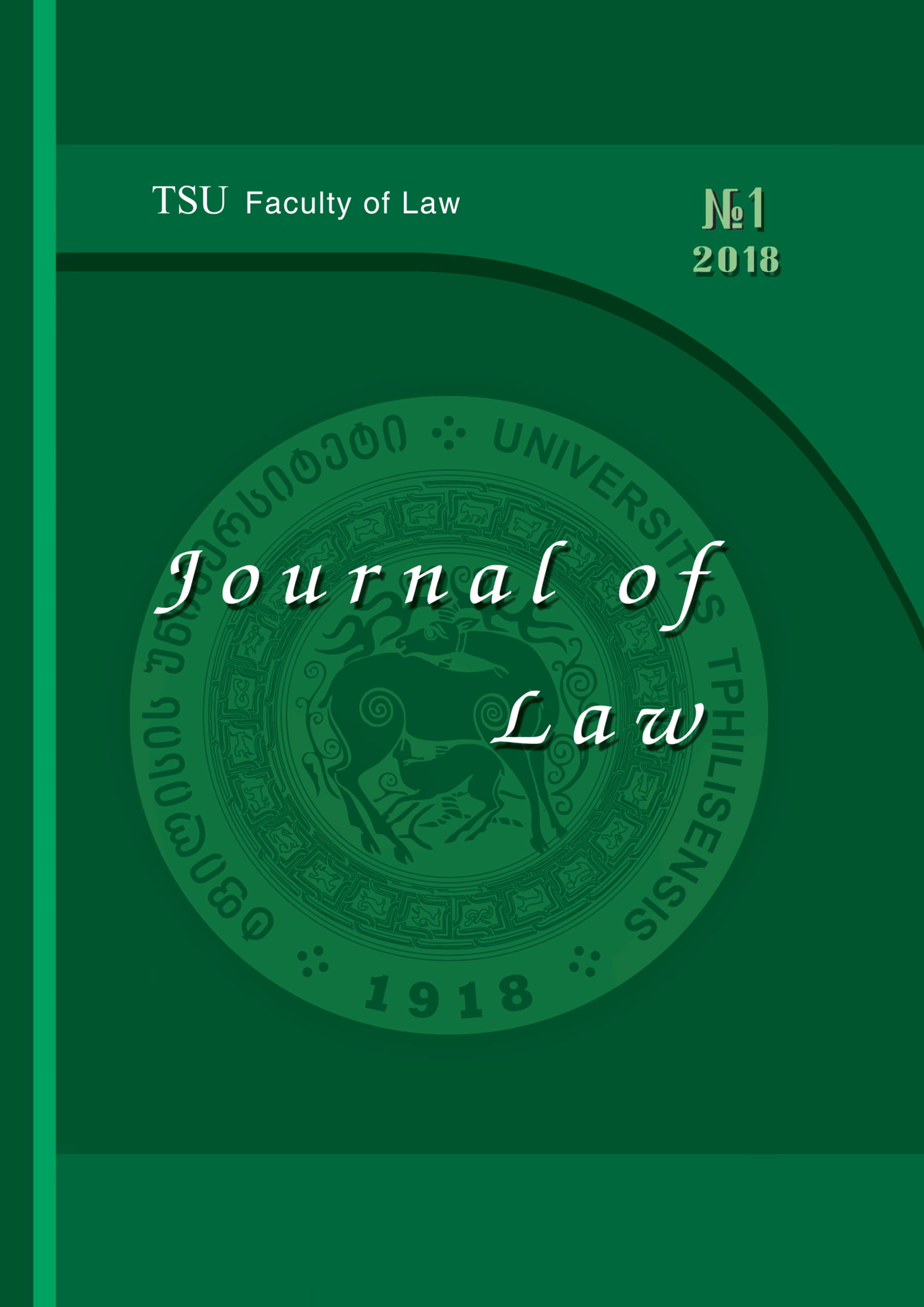Importance of Judicial Communication in Civil Proceedings in Germany
Keywords:
new regulation of the duty to give directions, new regulation of the institute of a mediator-judge, bias and scope of activities of a judge, delimitation between a dispute-reviewing and a mediator judge.Abstract
Two fundamental changes were introduced into civil procedure law at the beginning of XXI century with respect to the obligation of a judge to give directions and strengthening of the position of a mediator judge, meaning the authority of a judge to influence the parties to judicial proceedings and drive them to a settlement agreement. As a result of two new regulations the communication was strengthened both between a judge and the parties and the parties themselves. Hence, the role of a judge is no more limited only to leading the proceedings in accordance with established procedure and adoption of a well-reasoned decision, based on substantive law. A judge has more intensive communication with the parties before the resolution of a dispute, be it through a court decision or a settlement agreement reached between the parties.
This paper is an attempt to describe the main consequences of the new regulations and explain the new role of a judge.
The paper offers the justification that the terms of reference of a judge should be redefined through the expansion of the scope of his activities, what becomes particularly important in the sense of impartiality. The expanded scope of activities of a judge bears certain risks as well: on the one hand a judge is required to have direct communication with the parties and on the other - the parties are entitled to refuse this communication with a view to protection of their own interests - for instance, when a judge offers settlement conditions to the parties generating negative attitude of the parties towards him in doing so. The law offers a solution - to involve a dispute-reviewing judge and a mediator judge as different persons at different phases of case proceedings.
The paper will also discuss the financial benefits of judges' decisions based on party consensus.References
Baumbach/Lauterbach/Albers/Hartmann, ZPO-Kommentar, 73. Auflage 2015, nach Paragraphen und Randnummern zitiert.2.Gerold/Schmidt-Müller-Rabe, Rechtsanwaltsvergütungsgesetz, 19. Auflage 2008, nach Verzeichnis (VV) und Randnummern zitiert.
MünchKommZPO-Wagner, 5. Aufl. 2016, nach Paragraphen und Randnummern zitiert.
Prütting/Gehrlein, ZPO-Kommentar, 6. Aufl. 2014 nach Paragraphen und Randnummern zitiert.
Stein/Jonas, ZPO, 22.Aufl. 2004, nach Band, Paragraphen und Randnummern zitiert.
Wieczorek/Schütze-Smid, ZPO, 4.Auflage 2013, nach Paragraphen und Randnummern zitiert.
Zöller-Greger, ZPO-Kommentar, 31. Aufl. 2016, nach Paragraphen und Randnummern zitiert.
Berlemann, Michael/Christmann, Robin/Focken, Niels: Lassen sich Vergleiche und Berufungen vorhersagen?, in: Deutsche Richterzeitung (DRiZ) 2016, 62.
Greger Reinhard, Reinhard/ Weber, Harriet: Das neue Güterichterverfahren. Arbeitshilfe für Richter, Rechtsanwälte und Gerichtsverwaltung, in: Monatsschrift für deutsches Rechts (MDR) 2012, S. 9.
Schmitt, Stephan: Recht jenseits des Rechts, 2012 (Dissertation).
Schmitt; Stephan: Stufen einer Güteverhandlung: Lehre einer imperfekten Gerechtigkeit, 2014.
Schneider, Egon, Neue Juristische Wochenschrift (NJW), 1970, 1884.
Tochtermann, Peter: Die Unabhängigkeit und Unparteilichkeit des Mediators, 2008, S. 32.
von Bargen, Jan Malte: Gerichtsinterne Mediation. Eine Kernaufgabe der rechtsprechenden Gewalt, 2008, S. 192 (Dissertation).
von Bargen, Jan Malte: Der Richter als Mediator, in: Haft/von Schlieffen: Handbuch der Mediation, Verhandlungstechnik, Strategie, Einsatzgebiete, 2. Auflage 2009, S. 946.
Voßkuhle, Andreas: Rechtsschutz gegen den Richter: Zur Integration der Dritten Gewalt in das verfassungsrechtliche Kontrollsystem vor dem Hintergrund des Art. 19 GG, 1993, S. 93 f.
BGHZ 47, 275 (287) BGHZ 47, 275 (287).
BGH NJW 2004, 164.
BGH Anwaltsblatt (Anwbl) 2006, 71.
BGH NJW 2007, 2414.
BGH NJW 2006, 60, 62.
BGH, Beschluss vom 29.10.2012, Az.: V ZB 286/11.
BVerfGE NJW-RR 2007, 1073.
BVerfGE 42, 88.
OLG Karlsruhe NJW-RR 2013, 1535.
OLG München MDR 2004, 52.
Brandenburgisches Oberlandesgericht NJW-RR 2009, 1224.
OLG Rostock NJW-RR 2002, 576.
OLG Hamm MDR 2013, 1121.
OLG Frankfurt, NJW 1970, 1884.
OLG Frankfurt MDR 2007, 674.
OLG Frankfurt MDR 2007, 1884.
OLG Bremen NJW-RR 2013, 573.
OLG Karlsruhe NJW-RR 2013, 1535.
OLG Stuttgart MDR 2000, 50.
Arbeitsgericht Hannover, Beschluss vom 1.2.2013, Az.: 2 Ca 10/13, veröffentlicht in: Zeitschrift für Konfliktmanagement (ZKM), 2013, S. 130 f.
Published
How to Cite
Issue
Section
License
Copyright (c) 2019 TSU Publishing House

This work is licensed under a Creative Commons Attribution-ShareAlike 4.0 International License.









